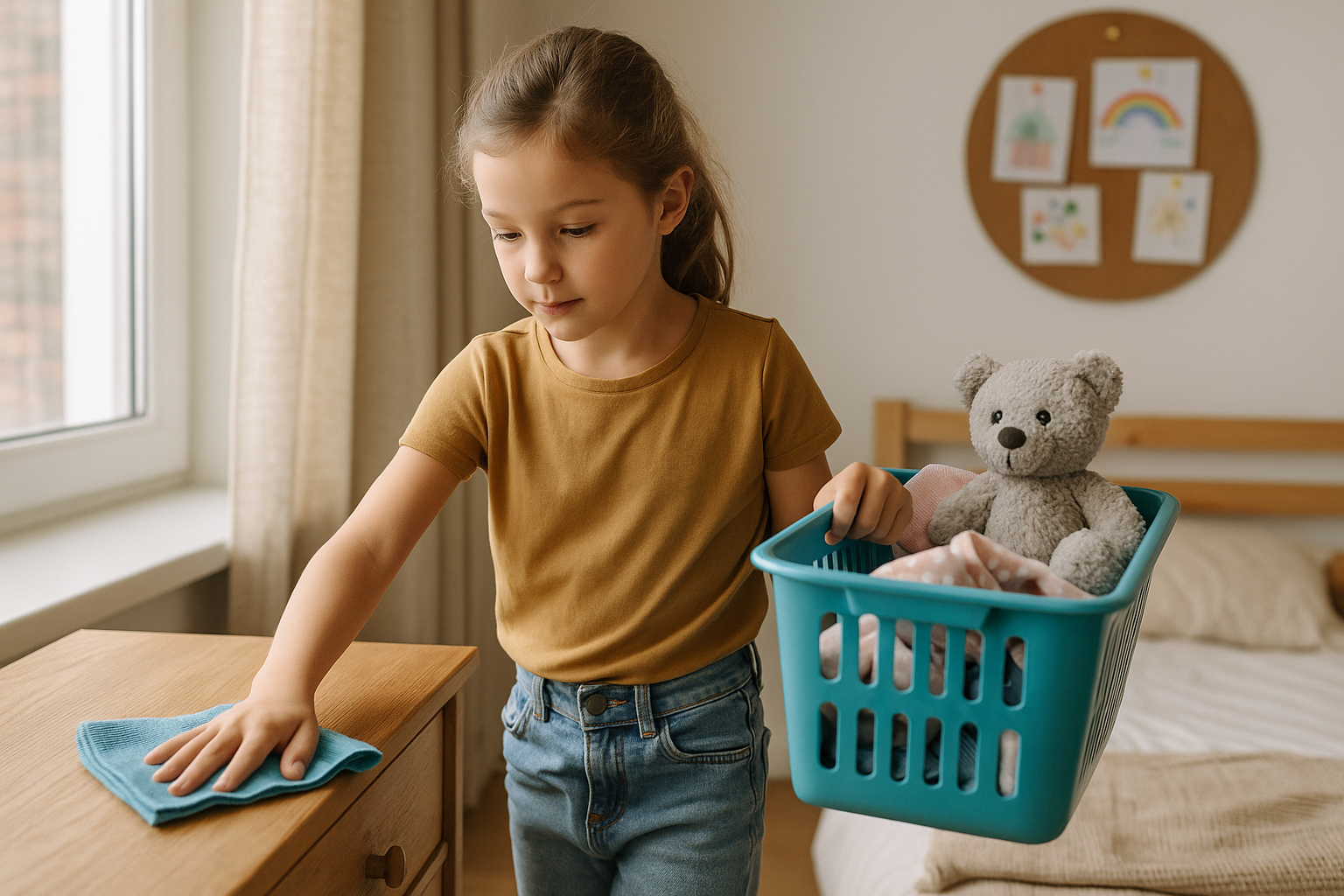Teaching children responsibility is about more than assigning chores — it’s about building character, independence, and trust. Responsible children grow into dependable adults who can manage tasks, take ownership of their actions, and contribute meaningfully to their communities.
Here are practical, everyday strategies to help parents and caregivers teach responsibility in a way that is engaging, age-appropriate, and encouraging.
1. Start Small and Early
Even toddlers can learn responsibility in simple ways. Let them put their toys away, carry their own backpack, or help feed a pet. The earlier you introduce these habits, the more naturally they become part of daily life.
Tip: Make it fun! Turn tidying up into a game or race to keep them engaged.
2. Assign Age-Appropriate Chores
Chores teach valuable life skills and show children that they are capable contributors. The key is to match tasks to your child’s age:
- Ages 3–5: Putting clothes in the hamper, wiping spills
- Ages 6–9: Setting the table, folding laundry
- Ages 10+: Cooking simple meals, taking out the trash
Clearly explain what needs to be done and offer support as they learn.
3. Follow a Routine
Routines help children develop responsibility naturally. When kids know what to expect each day, they start to take initiative. For example, brushing teeth after breakfast or putting on shoes before leaving the house becomes second nature.
Use visual schedules or checklists for younger children who benefit from clear structure.
4. Be a Role Model
Children mimic the behavior of adults. When you show up on time, keep promises, and manage your responsibilities, your child learns by example. Narrate your actions occasionally: “I’m folding clothes now so the laundry doesn’t pile up.”
This not only teaches responsibility but also normalizes effort and discipline.
5. Offer Choices and Let Them Decide
Letting children make decisions empowers them and builds accountability. Start with simple choices:
“Would you like to do your homework before or after snack time?”
By choosing, they’re more likely to follow through because they feel in control.
6. Encourage Problem Solving
When a child forgets something — like a lunchbox or homework — resist the urge to rescue them immediately. Instead, ask questions like, “What can we do differently next time?”
This helps children think critically and take ownership of their actions.
7. Use Natural Consequences
Natural consequences are powerful teachers. If a child doesn’t put their toy away, it might get lost. If they forget their jacket, they may feel cold. These real-world outcomes gently teach responsibility without you needing to impose punishment.
8. Praise Effort Over Perfection
Praise your child for trying, not just succeeding. “I noticed you cleaned your room without being asked — great job!”
This reinforces the behavior and builds confidence. Avoid focusing only on results; the process matters more when building lifelong habits.
9. Create a Responsibility Chart
Responsibility charts give kids a visual reminder of their tasks. Use stickers or checkmarks to track progress and celebrate milestones. These charts work especially well for younger children, as they enjoy visual feedback and tangible rewards.
10. Be Patient and Keep Teaching
Learning responsibility is a long-term process. Children will forget, resist, or make mistakes — that’s part of learning. Instead of reacting with frustration, use these moments as opportunities to reinforce the lesson.
Your calm, steady guidance helps them stay on track.
Conclusion: Growing with Responsibility
Teaching responsibility isn’t about enforcing rigid rules — it’s about guiding children to become thoughtful, reliable individuals. Through small, consistent actions, you can instill a sense of accountability that grows with them. Whether it’s picking up toys, caring for a pet, or managing time, each task is a step toward a more capable and independent child.
By providing structure, encouragement, and patience, you’re helping shape not just responsible kids, but confident, capable adults.
